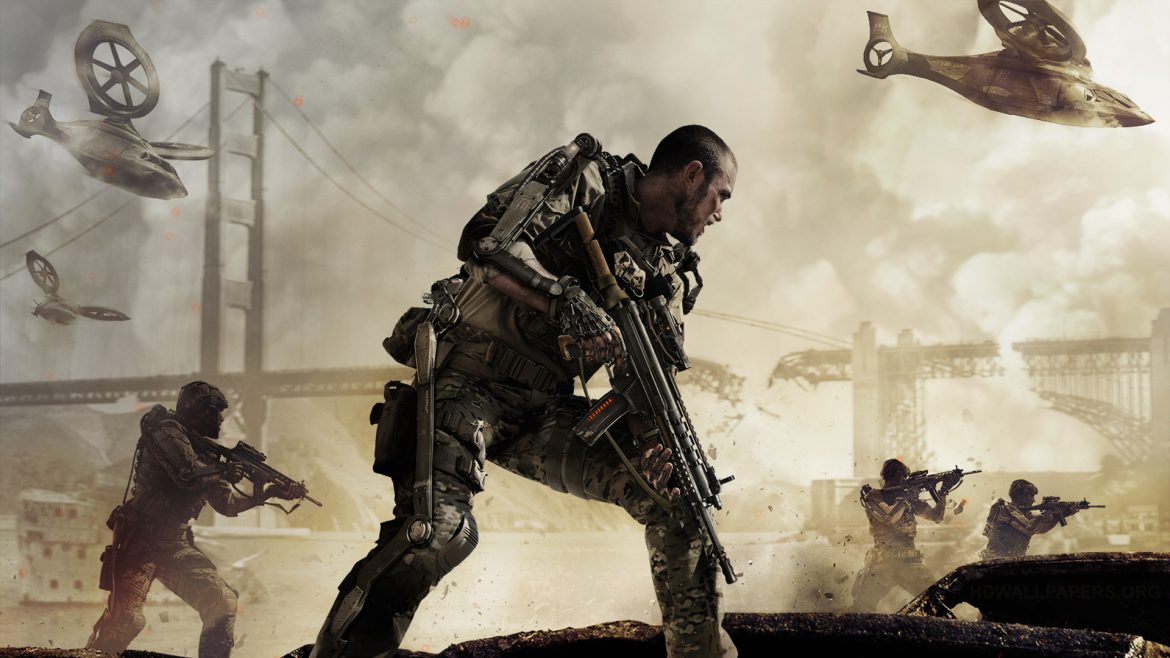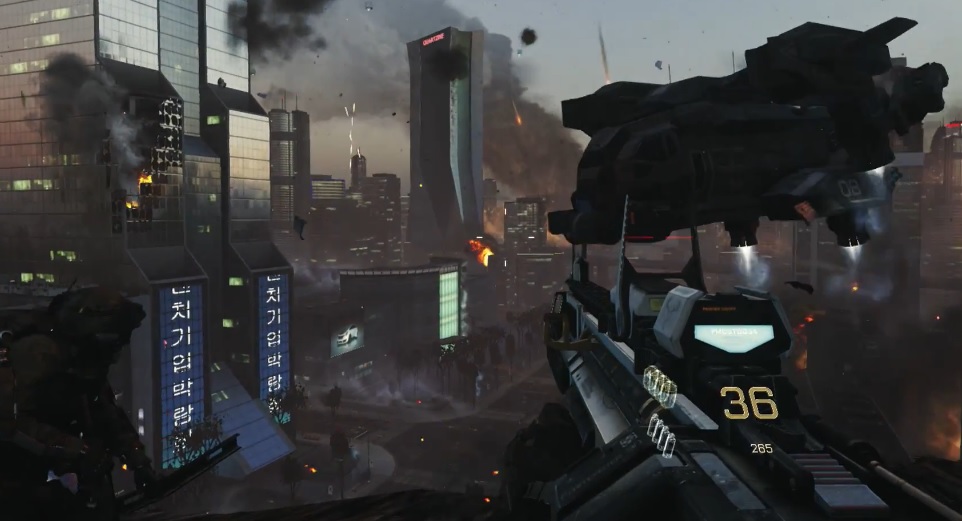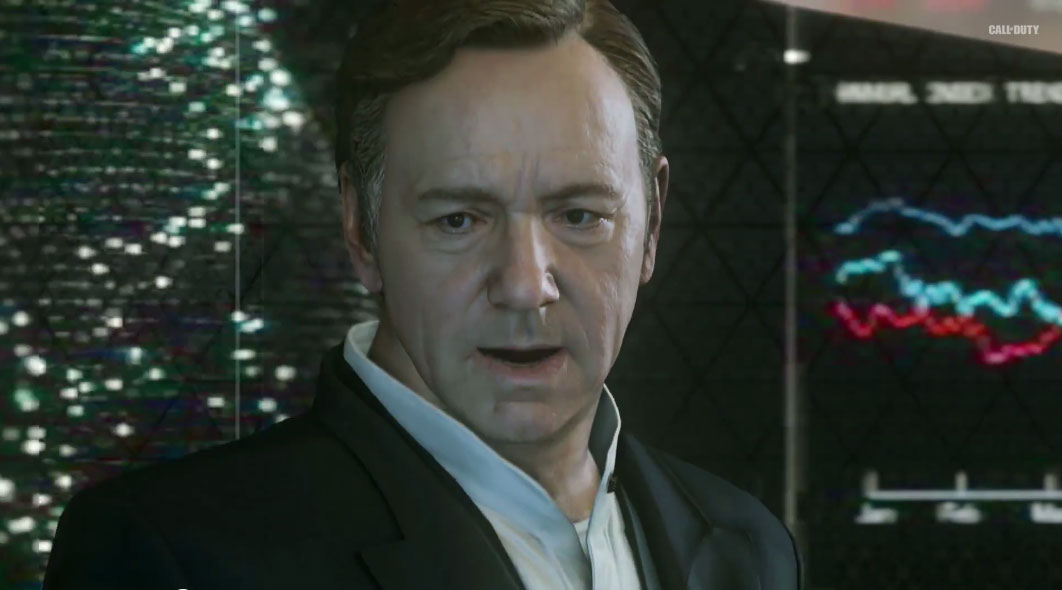TL;DR
Call of Duty: Advanced Warfare brings stunning next-gen graphics and a near-future setting with Kevin Spacey, plus cool Exo Suits and drones. While the core shooting action is solid and visually impressive, the gameplay loop feels familiar. Despite technological leaps, the series is starting to feel a bit generic, needing bolder narrative or design shifts. Is it worth your time? Dive into the full review to find out!
Activision’s annual first-person shooter release showcases impressive graphics, but does it genuinely innovate within the genre?
The challenge of innovating within an annual release cycle is significant. Consider EA Sports’ approach to their sports franchises. The question arises: how many iterations of football, hockey, or other sports titles can be justified annually? Moreover, how much can a fundamental concept be altered year-over-year without fundamentally changing its core identity? The Call of Duty series has undergone numerous transformations throughout its history (this installment marks the eleventh consecutive release, if our count is accurate), with Modern Warfare and Black Ops standing out as highlights. While we appreciated last year’s Ghosts, it garnered mixed reactions within the gaming press. Now, Call of Duty: Advanced Warfare arrives, featuring bionic suits and Kevin Spacey.
Fundamentally, first-person shooter (FPS) games share a common core. The appeal lies in engaging in intense battles from a first-person perspective. Successfully landing a headshot with a sniper rifle or navigating a battlefield amidst explosions elicits a visceral response. In Advanced Warfare, similar to the opening sequence of Ghosts, players experience spectacular moments, such as clinging to a bus at high speed while engaging enemies. While the narrative in FPS games may not always be paramount, it, coupled with varied mission objectives, provides the motivation to progress through each successive level.
Call of Duty: Advanced Warfare is set in a near-future setting, specifically 2055, where Earth remains a conflict zone. Players assume the role of Private Jack Mitchell, a young US Marine Corps recruit. Following a brutal initial mission in North Korea where his friend, Will Irons, perishes, Mitchell is offered a position with the Atlas Corporation, a private military company led by Will’s father, Jonathan Irons (portrayed by Kevin Spacey). Atlas operates as an independent entity, providing services to the highest bidder and combating the KVA, a Chechen special forces unit responsible for terrorist acts, including the occupation of Nigeria. However, the narrative prompts players to question the true nature of events.
Advanced Warfare introduces Exo Suits, technologically advanced bionic suits that grant enhanced abilities such as double jumps and rocket-assisted fall dampening, reminiscent of a spacesuit. Another addition is the implementation of Drones, which can be deployed and controlled remotely, providing a tactical advantage for clearing fortified enemy positions. While these elements initially provide entertainment, they do not significantly alter the core gameplay loop or mission structure. Overall, AW executes its core mechanics competently. Players engage in intense and often protracted firefights across various global environments, with diverse objectives. However, the fundamental game mechanics lack substantial variation. Each mission primarily involves advancing, eliminating enemies, and progressing to the subsequent level.
The character models in Advanced Warfare exhibit exceptional detail, showcasing impressive technological advancements that approach film-quality realism. The motion capture technology is approaching photorealism, and despite some peculiarities in Kevin Spacey’s rendering, certain cutscenes are visually stunning. The game’s graphics are also noteworthy, featuring expansive and seamless battle environments, coupled with impressive explosions and lighting effects. The audio quality is good, but not exceptional. While surround sound effects are utilized effectively, there is room for improvement in clarity, impact, and warmth within the overall sound mix, particularly given the availability of high-definition audio capabilities. Multiplayer, a cornerstone of the series, has unfortunately been marred by instability since launch. The demand for dedicated servers is crucial in today’s multiplayer-centric environment, and developers must accommodate the large player base. This places considerable demands on infrastructure, which no developer can fully satisfy at present.
In summary, Call of Duty: Advanced Warfare represents another competent entry in the CoD franchise, and the first developed primarily for current-generation consoles. Nevertheless, the Call of Duty series would benefit from innovative thinking, potentially through a bold narrative or a fresh design perspective. While the core FPS mechanics are executed effectively, the series is beginning to feel somewhat generic and repetitive, limiting its long-term appeal. Perhaps an examination of Halo is warranted, with the incorporation of controllable vehicles and a more in-depth narrative. Reducing the emphasis on constant shooting and cultivating atmosphere through non-combat exploration and, perhaps, even incorporating light puzzle elements could further enhance the experience. To draw a comparison, Call of Duty resembles a McDonald’s hamburger—consistently good and well-prepared, but in need of its own distinctive offering. Maintaining the core concept while introducing greater variation in the end product would be a welcome evolution.
Such an evolution would ensure continued player engagement, year after year.



